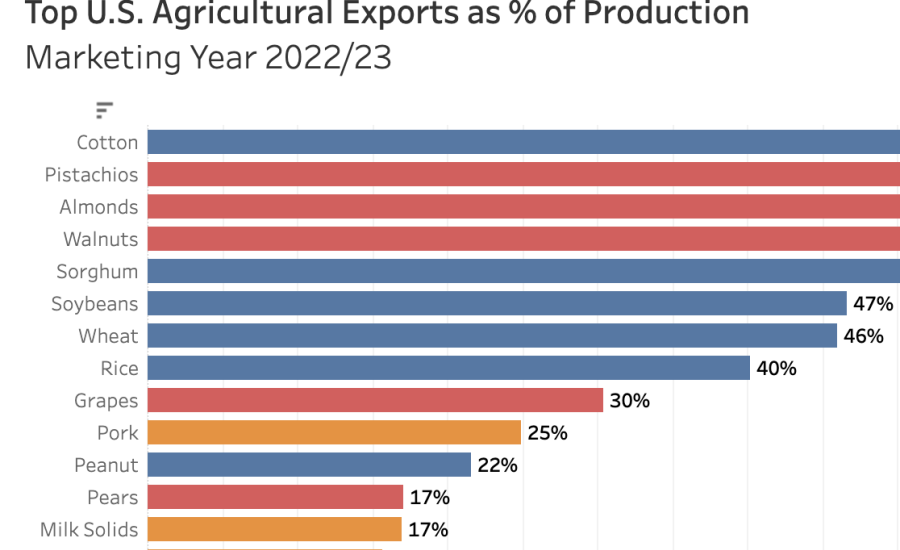Browse Data and Analysis
Filter
Search Data and Analysis
- 12 results found
- (-) Cotton and Hemp
- (-) May 2024
- (-) October 2015
- Clear all
Ukraine established a simplified procedure for temporary registration of genetically engineered cotton varieties only.
U.S. agricultural exports are a critical source of farm income. The USDA Economic Research Service estimates that on average 23 percent of the output of nonmanufactured agricultural products were exported between 2013 and 2022.
Early spring precipitations in Andalucía came as a relief, refilling water reservoirs. However, this allowed for only a marginal recovery in area planted to cotton, as rains arrived when planting plans were already in place and largely oriented to less water-demanding crops such as winter grains or early spring-planted sunflower.
The 2023 U.S. Agricultural Export Yearbook provides a statistical summary of U.S. agricultural commodity exports to the world during the 2023 calendar year.
Monthly report on crop acreage, yield and production in major countries worldwide. Sources include reporting from FAS’s worldwide offices, official statistics of foreign governments....
This monthly report includes data on U.S. and global trade, production, consumption and stocks, as well as analysis of developments affecting world trade in cotton.
The global cotton industry is still readjusting to lower post-pandemic demand, and Uzbekistan wasn’t spared the effects of the market overhang. Uzbekistan's strong vertical integration and government support for the industry have helped drive both its resiliency and recovery.
On August 14, 2015, the President of Ethiopia signed into law the necessary regulatory framework that will allow the cultivation of genetically-engineered Bt cotton.
Pakistan’s 2015/16 cotton production is forecast at 9.2 million 480 lb bales, down 800,000 from the previous estimate, and the lowest level since 2010.
Pakistan’s 2015/16 cotton production is forecast at 9.2 million 480 lb bales, down 800,000 from the previous estimate, and the lowest level since 2010.
The MY 2015/16 production estimate is 28.5 million 480 lb. bales as deficit rains lead to stunted crop growth and lower yields.
Zambia is a landlocked country in Southern Africa and can be credited with political stability and strong economic growth in the last decade.

